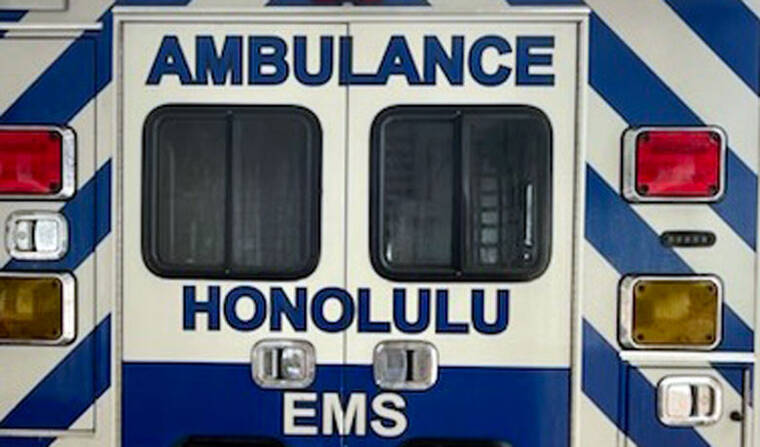KHON News - Three free-divers, night dive, 4 ft surge.
Man who died free-diving in Mokuleia identified
Posted: Apr 6, 2019 / 06:30 PM HST Updated: Apr 10, 2019 / 06:02 PM HST
A Pearl City man died while free-diving in Mokuleia on Oahu’s North Shore Friday night.
The medical examiner identified the man as 45-year-old John Matapua.
Rescue crews say he was with two other divers when they ran into trouble around 9 p.m. Friday.
Two divers were able to make it to shore.
The third diver, an adult male in his 40’s, was still unaccounted for.
HFD personnel on rescue boards could not locate the third diver at the location that he was last seen.
They returned to shore and Air1 began an aerial search.
HFD located the third diver under water approximately 40 yards off shore.
HFD crews made contact with the unresponsive diver and secured him on shore at 10:25 p.m.
He was pronounced dead at 10:36 p.m.
The cause of death is still unknown at this time. However, professional divers say ocean conditions were not ideal for diving on the North Shore last night.
HFD said attempts to find Matapua were difficult due to the darkness and rescue crews said there were also strong currents.
“On a night dive you can’t see much,” said Ricardo Taveira, master scuba diver trainer and owner of Hawaii Eco Dive, which owns a shop on the North Shore. “You can’t see swells coming at you, you only have one specific entry and exit point so if anything goes wrong—and if there’s any unexpected swell arriving and you don’t know about it, it can be pretty treacherous to you.”
Taveira even cancelled a tour leaving the west side of the island yesterday due to the swell.
He says he only dives the North Shore in the summer once the swells calm down.
Divers also advise having a plan in case something goes wrong.
“Sometimes going out when the sun goes down can make it real difficult once you’re out there,” said Kyle Nakamoto, executive producer of Hawaii Skin Diver TV. “If you know the weather conditions ahead of time, you can kind of plan accordingly.”
He also suggests having a floating device like a boogie board as backup.
He says divers should have a dive float, dive flag, a good dive light, pair of gloves, snorkel, mask, fins and a dive bag.
He suggests bringing a boogie board in case you get tired when you’re out at sea. He also recommends glow sticks for night divers as well.
Fire officials said it was hard to see exactly how big the waves were due to the darkness, but they estimate the break area around four feet.





